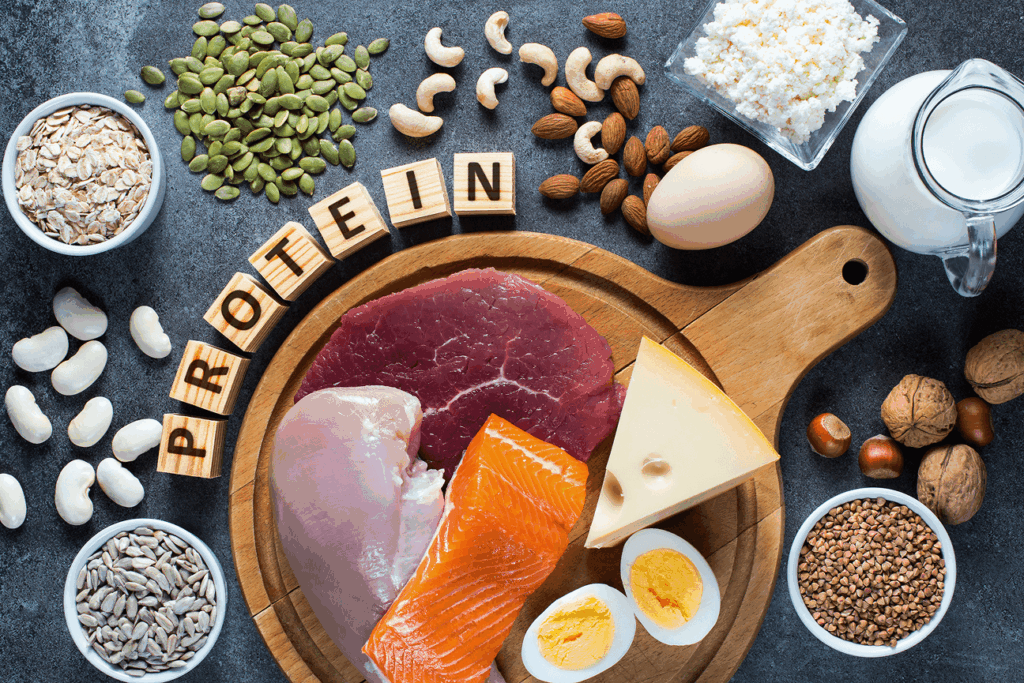Mind. Body. Spirit.
Eating Ample Protein Is Imperative for Weight Loss and Hunger Reduction
By Nancy Lum, RDN 
Most clients I see in my practice do not consume the protein necessary to spare their metabolic weight and build muscle. The lack of protein leads to muscle wasting and weakness, from the body breaking down muscle for energy. This breakdown of muscle leads to a decrease in metabolism or total calories burned in 24 hours. The reduction in metabolism makes weight loss much harder. When protein is lacking hunger and simple carbohydrate cravings increase. Carbohydrates digest and empty in 1-2 hours where protein takes 3-4 hours. Low protein levels lead to fluid retention in legs, feet hands, and abdomen. Fatigue and low energy develop due to inadequate protein needed to produce enzymes and hormones. There will also be a weakened immune system since lower protein means less antibodies are produced with a slower recovery from illness. Delayed wound healing as well as hair, skin, and nail issues from lack of keratin and collagen production which are dependent on protein.

Eating higher amounts of protein stimulates natural GLP-1 production in the gut. Protein rich meals trigger L-cells in the intestine to release GLP-1 as demonstrated in controlled studies with healthy participants. Whey protein has consistently shown to raise GLP-1 levels post meal. Finally certain branched chain and essential amino acids which are the building blocks of protein (Leucine, Isoleucine, and Phenylalanine) appear to directly stimulate GLP-1 release. In some studies, the rise in GLP-1 correlates directly with amino acids in the blood stream from protein rich meals, especially Leucine.
Protein intake is calculated based on your height and estimated bone and muscle weight for your height and then activity factors are added into the calculation for your exercise level. Everyone’s protein needs vary. Know your numbers. If you do not know them, see a Dietitian who can calculate them appropriately.
Add lean protein foods to every meal and snack to reduce hunger and slow down digestion and emptying. Protein foods consist of fish, seafood, lean 85-97% meats (beef, pork, poultry), beans/lentils/soy, nuts/seeds, nut butters, low fat dairy, and eggs. Layer your protein foods with complex carbohydrates like whole fruits, vegetables, and high fiber whole grains to increase fiber for constipation prevention. Finally, incorporate into these layered meals the good fats like nuts/seeds and nut butters (also proteins) as well as avocado and avocado oil, cold pressed Olive Oil, chia seeds, ground flax seed, fatty fish (also protein). Together these will increase satiety and provide essential nutrients for overall health. Finally, the fibers in fruits, vegetables, and whole grains like oatmeal provide the fiber necessary to move the bowels and keep you regular. Higher protein intake can initially cause constipation so a balanced diet and 64 plus ounces of non-caffeinated fluids daily keeps you regular.